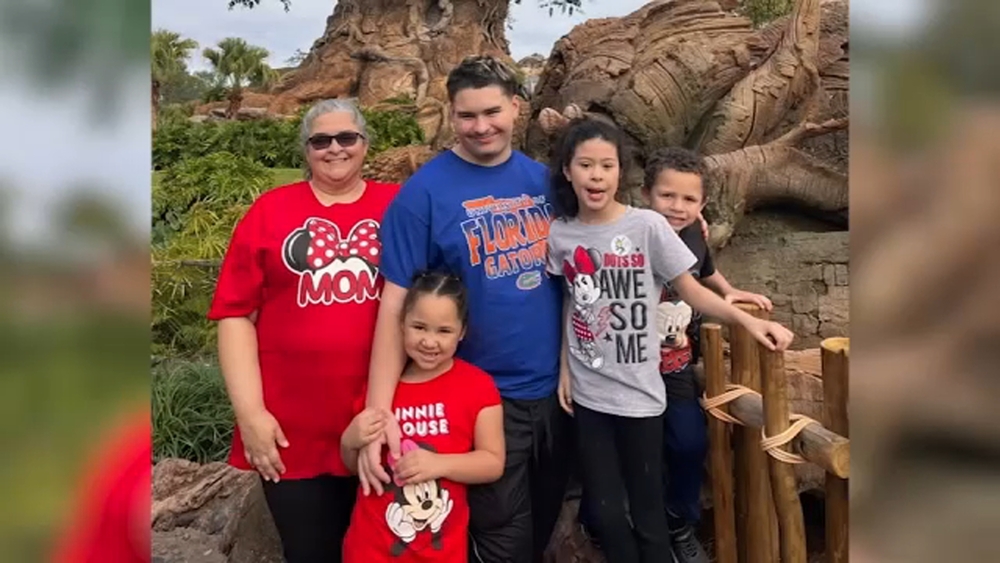Grieving families in North Carolina forced to wait months to learn loved ones' causes of death

RALEIGH, N.C. (WTVD) -- A Spring Lake family is longing for closure more than a year after their daughter's death.
Aliana Campbell, 6, passed away unexpectedly days after having surgery on March 31, 2023. Since then, her parents have been waiting for answers.
"We knew it was a result of the surgery that she had," her mom Constance Campbell said.
"We just didn't know exactly what it was. The waiting period to actually find out what happened to her. You know, that was the hardest part," her dad Curtis said.
An autopsy was done by the NC Office of the Chief Medical Examiner shortly after Aliana passed away, but the Campbells did not get the death certificate.
"I'd call them every day, almost every single day. They probably got to know my voice after a period of time," Constance said.
Without their daughter's death certificate, the Campbells were left in limbo.
SEE ALSO | FBI warns property thefts up 500%, several attempted cases reported in NC

"We haven't been able to close out bank accounts, insurance policies, we haven't been able to do anything. Health insurance policies, they wouldn't release her off of those," Constance said.
After a year and four months of waiting, the Campbells felt completely hopeless.
"Hard for parents to go through and you don't, you want to know why your loved one is not here or what happened, and they just prolong you for, like, because they don't have enough staff," Curtis said.
The Campbells eventually reached out to Troubleshooter Diane Wilson after seeing investigations dating back to 2019 about the backlog of cases at the NC Office of the Chief Medical Examiner.
In the past, the state has said an increase in cases, along with staff vacancies contributed to the long waits. Now, still years later, the state said it continues to struggle with the same problems, which is making it difficult to close cases in a timely manner.
State forensic pathologists are completing 100 more autopsies than the National Association of Medical Examiners standard, making the average wait time to complete or close a case here in North Carolina greater than 200 days.
While the state's vacancy rate has improved and it has added temporary staff making up 45% of its workforce, those temporary staff members aren't a consistent, stable, long-term solution.
After Wilson asked about Aliana's case, the Campbells got a phone call.
"The medical examiner's office did call me. They apologized for taking so long, and explained they are short on workers," Constance said.
SEE ALSO | NC tax preparer pleads guilty to dozens of charges after ABC11 Troubleshooter investigation

Within a week, the Campbells finally received what they'd been waiting a year and four months for, the death certificate along with the cause of death.
"We would be still waiting if we would not have reached out to you," Constance said to Wilson.
Here is the full statement the state provided about the situation:
Every decedent served by the NC Office of the Chief Medical Examiner (OCME) has a family and other loved ones who are grieving their loss and seeking answers to why they died. Providing those answers and ensuring North Carolinians receive critical services from OCME is a top priority for the Department. However, OCME is struggling with staffing and high caseloads - both of which have a negative impact on the system's ability to timely complete (or close) cases.
The vacancy rate has improved from 20% in June 2024. That improvement is because OCME was able to hire two additional pathologists who joined the team last month. Their arrival has reduced OCME's vacancy rate of permanent positions to 13%, and we are already seeing some incremental improvements.
North Carolina's medical examiner system continues to struggle with high caseloads. Specifically, NC experienced a 26% increase in medical examiner cases from 2019 to 2023, which was undoubtedly influenced by the 69% increase in suspected drug overdose cases. The increase has resulted in a backlog of cases at OCME which creates challenges for law enforcement, attorneys our public health partners, and for the families and communities left behind. There is not a different process or precedent to follow for criminal cases. That's because every death investigation conducted by the OCME has its own unique set of facts and circumstances, and the length of time to complete a case can vary based on several factors. Since each case is unique and important for those waiting for information, we work closely with families, law enforcement, attorneys and others to answer questions and determine next steps.
The National Association of Medical Examiners (NAME) has established a caseload standard that a forensic pathologist perform 250 autopsy equivalents or less each year. Those same standards call for 90% of autopsy reports to be completed within 90 days. NC's forensic pathologists are not currently able to meet these standards - performing 350 autopsy equivalents per year (that's 100 more than the 250 recommended by NAME). The average time to complete or close a case currently remains the same - greater than 200 days. Other factors which negatively impact our average case completion time are staffing vacancies and time spent away from the office testifying in court.
To expand our workforce so as to meet current demand, OCME has assembled a temporary and time-limited team of staff and professionals that currently compromise approximately 45% of the OCME workforce. They include part-time and temporary forensic pathologists, physician extenders and autopsy assistants. Although these team members are important additions to the workforce, they are temporary and there isn't consistent, stable funding to support them long-term.











